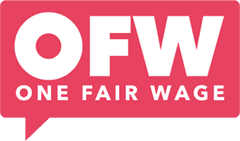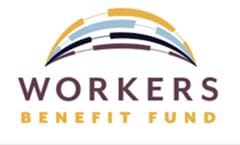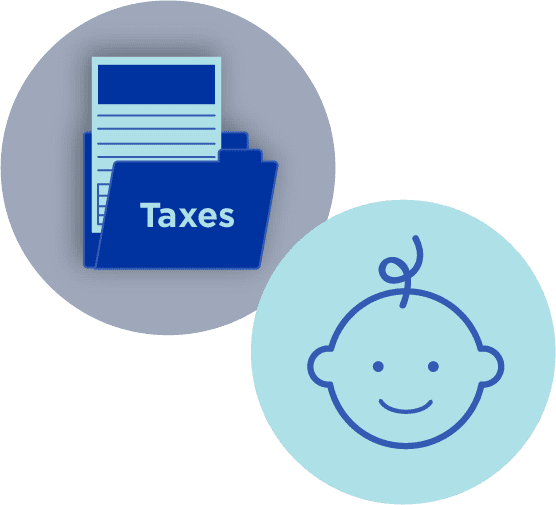TAKE CARE
Financial Security for Domestic Workers
Financial Security for Domestic Workers
TAKE CARE
Financial Security for Domestic Workers
Financial Security for Domestic Workers
Whether working as nannies, house cleaners, or home health aides, domestic workers are some of the most valued—yet financially insecure—workers among us.
For these workers we entrust our home and family to, Neighborhood Trust’s social enterprise, TrustPlus, guides them toward a resilient financial future and elevates their voices in support of structural change.

Nearly 75% of domestic workers did not receive any compensation when their jobs were canceled during the pandemic

84% were food insecure during the pandemic
Whether working as nannies, house cleaners, or home health aides, domestic workers are some of the most valued—yet financially insecure—workers among us.
For these workers we entrust our home and family to, Neighborhood Trust’s social enterprise, TrustPlus, guides them toward a resilient financial future and elevates their voices in support of structural change.

Nearly 75% of domestic workers did not receive any compensation when their jobs were canceled during the pandemic

84% were food insecure during the pandemic

In partnership with NDWA Labs, the innovation partner of the National Domestic Workers Alliance, TrustPlus empowers domestic workers to manage their cash flows, get out of debt, and build credit and savings.
The share of workers in jobs without basic worker rights and protections, including gig workers, is on the rise: more than a third of the labor force are independent workers, and this segment of the workforce is growing 3x faster than the total working population.
Elena
Elena* splits her time as a nanny between two families, and even before the pandemic, her schedule was unreliable and she lived paycheck-to-paycheck while supporting her own family.
One Friday, after taking a La Alianza survey on Facebook Messenger, she was referred to TrustPlus.
*Elena is a fictional composite of many real stories our Financial Coaches heard from domestic worker clients.
Elena
Elena* splits her time as a nanny between two families, and even before the pandemic, her schedule was unreliable and she lived paycheck-to-paycheck while supporting her own family.
One Friday, after taking a La Alianza survey on Facebook Messenger, she was referred to TrustPlus.
*Elena is a fictional composite of many real stories our Financial Coaches heard from domestic worker clients.

TrustPlus is designed to seamlessly integrate into workers’ lives, no matter where they work.
NDWA Labs collects real-time data on domestic workers’ working conditions and economic situation through La Alianza, which uses Messenger to conduct regular surveys. In addition, La Alianza provides workers with practical resources, including tax prep or SNAP application assistance, or referring them to TrustPlus for financial coaching. That’s how we met Elena.
Elena was in dire straits:
Her clients cancelled her jobs, worried about the risk of exposure to coronavirus.
She had $10,000 in credit card debt and began to fear eviction when she learned about TrustPlus from La Alianza.
The TrustPlus Financial Coach she was referred to, Tiffany, guided her to prioritize food, housing, and internet, while paying the minimum on her credit card. Elena then accessed public benefits like food stamps and a stimulus check for her son, and she was connected to a pro bono housing lawyer.
Neighborhood Trust is expanding our reach among vulnerable workers through partners like NDWA Labs, as well as One Fair Wage, who serve tipped and sub-minimum wage workers in the service industry, Workers Benefit Fund, who serve gig workers, and our partnership reaching drivers with New York City’s Taxi and Limousine Commission.




The domestic workers served by TrustPlus reduce and avoid predatory debt, improve their credit, and relieve financial stress. Each step moves workers closer to long term financial security.

“I want a copy of this call—I feel like I have a plan now. This has lifted my spirits.”
—Claudia H., Careworker

“I want a copy of this call—I feel like I have a plan now. This has lifted my spirits.”
—Claudia H., Careworker
Clients like Elena gain control of their finances and feel more hopeful for their future. Even when facing big challenges, knowing they have a Financial Coach on their side and a plan at their fingertips reduces our clients’ stress.

Tiffany, Financial Coach
Securing rights for domestic workers is an ongoing fight.
Domestic workers have historically been intentionally excluded from social security, minimum wage laws, and other basic labor protections due to racist lawmaking. People of color were, at the turn of the 20th century, often limited to jobs in domestic work and agriculture, and these workers were excluded from the New Deal and other social safety nets by southern Congress members to reinforce the racial caste system.
At TrustPlus, our trusted relationships with domestic workers, paired with powerful data about their financial lives, empowers us to support a pro-worker agenda.
In dialogues with Financial Coaches like Tiffany, workers share powerful, nuanced information about their financial lives, often revealing cracks in support systems or surfacing promising interventions.
Combined with our integrated financial data, we aim to leverage these insights in pursuit of institutional and systemic impact.
Neighborhood Trust today is leveraging our data and insights in support of expanded Child Tax Credits (CTC). The Child Tax Credits deliver hundreds of dollars per month to eligible families, helping to make otherwise-volatile incomes more dependable for workers who need it most. In partnership with allies, we are promoting research-backed strategies to increase awareness about the CTC and how working families can make the most of these payments.

We are proud to partner with the National Domestic Workers Alliance on a pro-worker agenda that brings respect, recognition, and rights to the nearly 2.5 million nannies, house cleaners, and home care workers who do the essential work of caring for our loved ones and our homes.





Follow Us